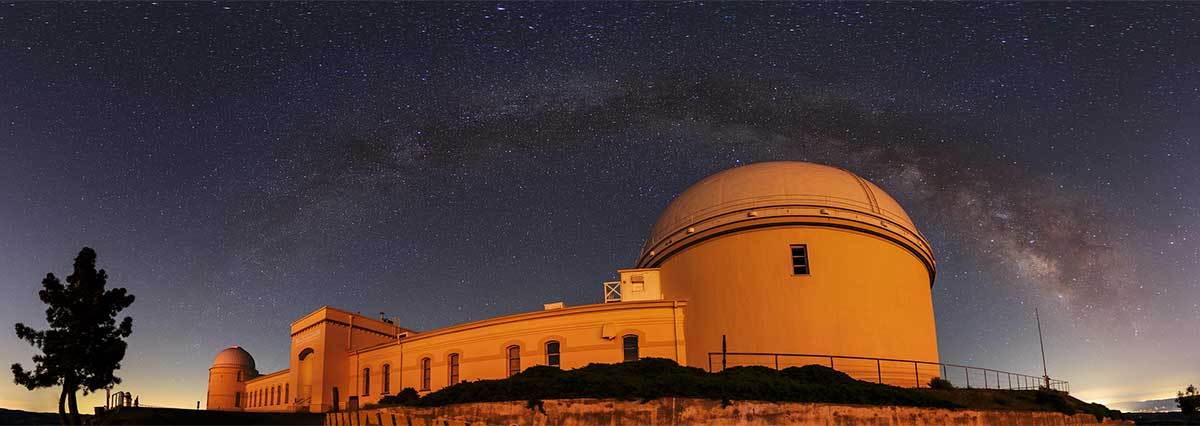Despite serious threats from the SCU Lightning Complex wildfires burning across Mt. Hamilton east of San Jose, the University of California’s Lick Observatory, its staff and Mt. Hamilton residents have so far remained largely unscathed.
Cal Fire and other organizations were stationed at Lick Observatory throughout Wednesday night and early Thursday and used the astronomical observatory’s buildings as a command center and safety zone for crews, according to UC Observatories Director Claire Max.
“Thanks to their tremendous efforts, the telescope domes did not burn,” Max said.
However, one residence that was not being used burned completely and several other residences sustained some structural, smoke and water damage on Mt. Hamilton.
The observatory’s Kepler Peak, where several residences are located, was spared as fire crews diffused the potential conflagration overnight. Lick Observatory Superintendent Kostas Chloros said Thursday that despite very high and hot flames surrounding the peak, all structures stayed intact.
The Lick Observatory is located within the Calaveras Zone of the SCU Lightning Complex fires, so the research facility is still threatened, according to Max. Because some areas were left unburned Wednesday night, firefighters were concerned the fire might circle back. The fire was about 10 percent contained as of Friday afternoon, according to Cal Fire.
Max said observatories all over the world have been sending messages of concern to the Lick Observatory. Since its founding in 1888, the observatory has been at the forefront of astronomical research and houses one of the world’s largest refractor telescopes.
To learn more about the SCU Lightning Complex fires, which consists of about 20 separate fires in five different counties, people can visit Cal Fire’s website.
